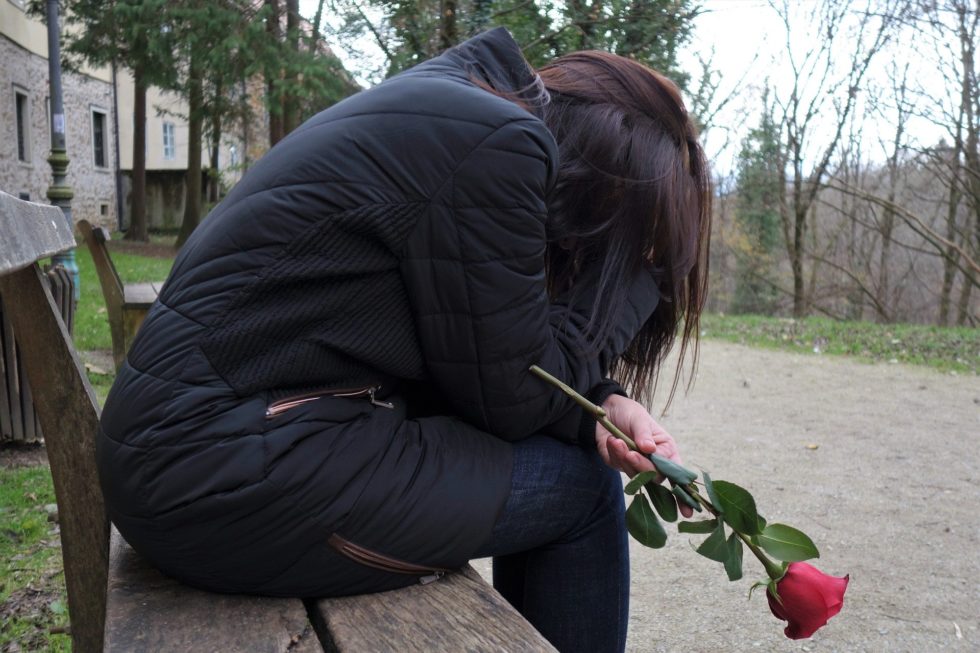I have the kind of depression that is really, really difficult for other people to deal with.
When you have been one version of yourself for a really long time, it is hard to recognize it when you change. I still think of myself as too shy to carry on a conversation with a new person, even though most people don’t think I hate them when we meet anymore. I have spent recent times lamenting the decline in my geek cred while failing to notice that I’m planning Dungeons and Dragons campaigns while talking over the superhero comics my friends are writing.
And so it is with my mental health. I spent my late teens and early twenties in a near-constant state of crisis, so I sometimes feel like I’m constantly on the brink of a relapse(/collapse), seemingly without realizing that the years of treatment I’ve been through were designed to prevent exactly that.
I have the kind of depression that is really, really difficult for other people to deal with. Pretty much everyone is a worse person when they are depressed than when they’re not, but I have the high drama kind of depression. The calling-people-in-hysterics kind. The people-showing-up-at-my-door-in-the-middle-of-the-night-worried kind. As a consequence, I tend to lose friends because of it. I try to tell myself that I’m worth it, that the people who put in the effort get it back from me tenfold, but I know it’s more complicated than that.

In college, I was close to a group of people who were, in retrospect, maybe just not the right people for me to be friends with. I didn’t have too much in common with them, and though we liked each other a lot, we sometimes had trouble finding subjects in which we genuinely shared an interest. Mostly, we were close because we were close — it was a kind of unhealthy but also kind of awesome codependent group who got together for gossip and homework and ordering pizza at 1 a.m. to be delivered to the library.
These were the first people to drag me to the university counseling center at my school, twice, which I appreciated only very belatedly. They stuck with me through the first time my depression got really, really bad. We had some fights — mostly times when I was trying to communicate something I was hurt by and it was not being properly communicated — but when I was doing better, I reached out to try and show I was going to be a good friend again. I thought that they’d still be around.
Not so much. Suddenly my texts and Facebook messages weren’t getting responses. I’d run into the whole group doing something I hadn’t been invited to. The final blow came when I learned they’d gone shopping for bridesmaids dresses for one friend’s wedding, which is how I officially found out I was no longer a bridesmaid. At that point, I gave up, and when I did, I got angry.
How dare they stop being friends with me without a word, I thought. I would never — NEVER — have done that to them! I would have given them another chance! How could they just cut me out without so much as explaining what I had done wrong?
That anger, like most anger, may or may not be justified on my end, but it definitely doesn’t reflect the whole truth about how those relationships ended. On some level, it is as simple as, “I deserve friends who will stick around for me, because I would stick around for them” (the truth of which I believe I have demonstrated in my friendships both before and since), but there are lots of other levels too, and some of them are probably closer to reality.
The last five years, while difficult in their way, have left me in a much better place than I was then. Among my current group of friends, I am complimented on my “confidence,” “strength,” and “sunny disposition.” Still, I have this neverending (and completely annoying) anxiety that one of these days, I’m going to get sick again, and everybody’s just going to disappear.
The reason this is a problem (other than the fact that it sucks) is that it makes me really nervous to ask for anything from people. At all. Ever. The other day one friend reminded some others of some money they owed me, and I just kind of shuffled around nervously as they tried to ask me how much. I feel like I have to earn friendship points with Thai food and rides to the airport because what if one day I need them?
I’m having health problems right now, and that means cashing in those friendship points more regularly than I usually do. I have had to let other people answer my door and cook me food because I can’t get up off the couch very easily. I’ve been asking people to bring me my pain pills, refill my water glass, and feed my cats. It is hard not to feel like a burden, even though I know people are volunteering to take care of me.
Consciously, I am well aware that friendships are a give and take, and that people are letting me emphasize the “take” part right now because I need it and they love me. I also know that I cannot blame people from my past for feeling that I took too much. Nor can I blame myself for fears that people will disappear — those fears seem reasonable given the circumstances.
I am mostly just angry with my depression: angry that it keeps me locked up in my room at the time that I need other people the most, angry that it makes me think in ways that I cannot handle with grace, and angry that it makes me doubt my own judgment so much that I can’t tell if my needs are reasonable.
But, although it would be nice to be able to make health problems go away by being angry with them, so far I have had no luck with that strategy, and have been forced to resort to treating them. Soon my recovery from my physical illness will be complete, and I won’t need as much from my friends. Eventually my mental health might suffer again. Maybe this time on the couch will be good practice for learning how to ask for help when I need it.






